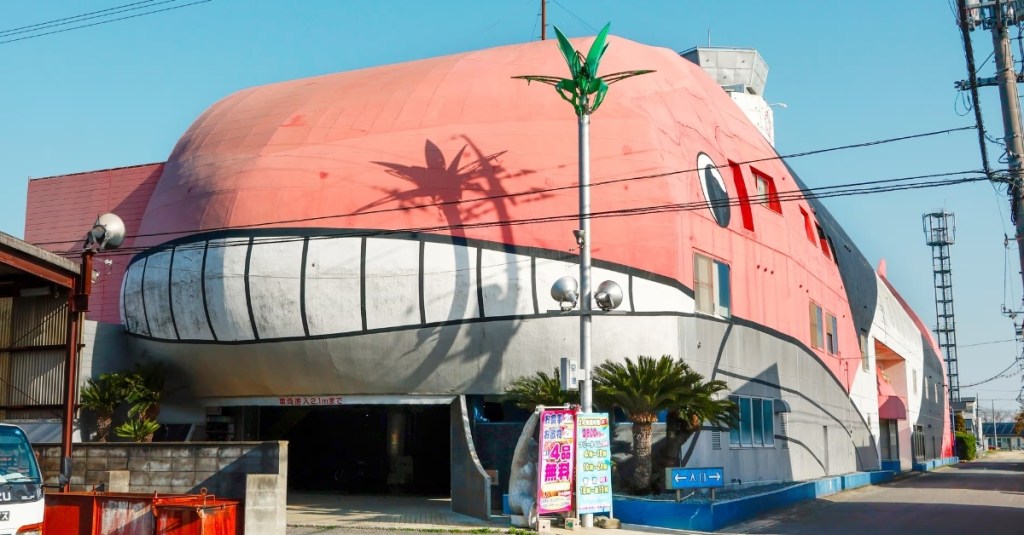Hidden among Tokyo’s side streets and off the shoulders of quiet highways, Japan’s love hotels look more like theme parks than places for a secret hookup. Some resemble castles. Others are modeled after UFOs, pirate ships, gingerbread houses—or, if you’re into it, a massive pink whale with a giant grinning, gaping mouth.
These buildings, known as rabu hoteru, are designed for intimacy—short-stay hotels that offer total privacy, no questions asked. Check-in is discreet, often via touchscreen, vending machines, or through frosted glass where staff can’t see your face. Guests book by the hour (“rest”) or overnight, no reservation needed.
Videos by VICE
Some travelers now treat them like tourist attractions, thanks to French photographer François Prost. His new book and project Love Hotel! captures the surreal, kitschy, and weirdly charming architecture of these roadside fantasy palaces. “They’re places of escapism, fantasy, and almost childlike wonder,” Prost told The Guardian. “And you find them everywhere.”

What Are Love Hotels?
There’s a hotel shaped like Moby Dick, one scaled by a giant King Kong, and another guarded by life-size dinosaurs. Some look like castles or chalets; others are decked out in holiday themes or bathed in pastel neon. Many include private garages and hidden entrances to avoid run-ins with fellow guests.
The concept isn’t new. These hotels trace their roots to the Edo period, when secret teahouses allowed couples to meet discreetly. By the Shōwa era in the 20th century, they’d evolved into themed escapes for a society where people often live with family until marriage. In the 1970s and ’80s, they boomed—becoming Japan’s unofficial headquarters for private sex lives.
Legal scholar Mark D. West estimated in 2005 that Japanese couples make over half a billion trips to love hotels each year. That means a sizable chunk of the country’s population may have been conceived in rooms equipped with karaoke machines, rotating beds, or heart-shaped tubs.

But they’re not always inclusive. Amy Astman Baker, a foreign teacher living in Japan, shared how she and a female friend were turned away from a Kobe love hotel. “We ended up sleeping in a pay-by-the-hour karaoke booth that night,” she wrote. A second attempt—with five female friends in Osaka—ended the same way. “We just wanted a warm bed. Since when do people discriminate against five girls just looking to have fun?”
Some hotels appear friendly to groups just looking to hang out, offering hot tubs, karaoke, and massage chairs. But others seem firmly committed to the traditional mission—two guests, one fantasy, no deviations.
At their heart, love hotels are an architectural rebellion against repression. In a society often seen as buttoned-up, they offer a no-judgment zone for indulgence, anonymity, and, sometimes, absurdity. Where else can you live out your sci-fi fantasy or get freaky inside a whale?
More
From VICE
-

Samsung Galaxy S25 Edge silicone case colors – Credit: Samsung/Android Headlines -

Tatiana Maksimova / Getty Images -

(Photo by FRANCK FIFE/AFP via Getty Images)

